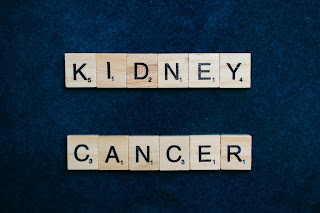This article will surely get lots of hits and lots of comments. How do I know that? Because I have done other articles on eggs. You are going to have numerous people out there who do not believe that eggs are healthy for you and that is okay. But on the other hand, there are millions of people out there who eat eggs every single day. Now I ask you from my heart, to be gracious and regarded to others, not to knock them nor anyone else, if they eat eggs let them eat their eggs.
So I am going to keep this content more conversational and practical. I don't want to go into the deep science, chemistry and exploration before all of this. There are a lot of different opinions towards egg yolks. Although to this day, there's no true scientific data that shows a direct correlation from salutary cholesterol to blood cholesterol. Throughout recent many years, I have met various patients. I have truly dear friends who are cardiologists as well as internists. I tête-à-tête spoke with them and I wanted one of them to come on and share their opinions with me, but it did not work out that way. But I can tell you through their experience and mine, there are numerous people who eat at least a dozen or more eggs a week. That has low cholesterol, things have changed extensively from the once cholesterol was the big thing. But today they are using different tests that correlate to heart complaints.
So then there is the problem about the egg. It's the cholesterol in the yolk. There is no cholesterol in the white but only in the yolk, roughly 200 milligrams, but they're saying you should not eat more than 300 milligrams per day. So in that yolk there are so numerous important vitamins that help heal the body, it has vitamin A, D, E and K along with omega- 3 fats and veritably important antioxidants like lutein and zeaxanthin which are extremely important for your eye health. Our body is producing 75 of our cholesterol, and we are only counting on that 25 percent from our salutary foods. Now suppose about this, if we are taking in too much cholesterol our liver is going to produce lower cholesterol and if we are taking in too little cholesterol then our body is going to produce further. So why are we letting our mind fight our body? Our body is a lot further intelligent than our mind. I'm sure that if your body needs to do something, it's going to do it correctly if you do not intrude with it.
Cholesterol is a good thing.
1. It builds and maintains cell membranes.
2. It's essential for determining which molecules can pass into the cell wall and which can not.
3. It's used in the production of the sex hormones estrogen and testosterone.
4. It's essential for the production of hormones released by the adrenal glands, particularly cortisol.
5. Furthermore, it aids in the production of bile which helps digest fats.
6. It switches daylight over completely to vitamin D in the body.
7. It protects nerves.
Cholesterol is utilized by the body to make the linings of the nerves called the myelin sheath which is significant like a cautious covering around an electrical line. The brain is composed of cholesterol. Millions of people worldwide are given medicines to lower their cholesterol, and now we wonder why they're having so numerous neurological issues. Pharmaceuticals is a multi-billion dollar business, and I am not here to knock down. I'm here to make sure that you stay visionary for your own health. I believe that the chemistry of an egg should be the way that it was produced and when we take things apart we can affect our own metabolism within our body. Yes, chicken eggs are advanced in cholesterol but the effect of egg consumption on blood cholesterol is minimal when compared with the effect of trans fats and saturated fats.
So if you have a history of heart complaints, I would always advise you to follow your doctor's recommendations. So in my opinion the yolk is surely a go. It's veritably important to make sure you eat a healthy diet, lots of vegetables, get your exercise hydrated, get your sleep and do all the proper stuff that's necessary to keep yourself healthy.
"I sincerely hope you've enjoyed it so far. Please do not forget to follow, share and bookmark my blog if you want to see further content like this."
Leave your comments below because I know there'll be numerous and most important make it a great day..!!































































